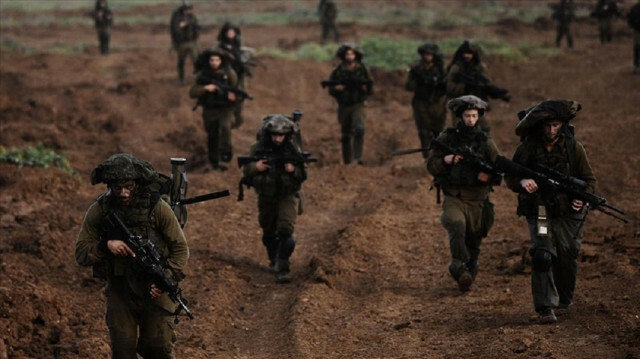
Talks about four Israelis held hostage by the Palestinian resistance movement Hamas have been revived after Israeli authorities made their release a prerequisite to allowing reconstruction aid for the besieged Gaza Strip.
An Egyptian-brokered cease-fire agreement between Israel and Palestinian resistance movement Hamas on May 21 brought to an end 11 days of Israeli bombardment of the enclave that claimed the lives of at least 289 Palestinians and left a trail of destruction that saw residential buildings, health centers, schools, and media houses among other civilian structures targeted.
“First and foremost, Israel is fully committed to returning our MIAs (missing in action) held by the Hamas,” Israeli Foreign Minister Gabi Ashkenazi had remarked when he arrived in the Egyptian capital Cairo on May 30 for talks on the Gaza cease-fire with his Egyptian counterpart Sameh Shoukry.
Hamas, which rules Gaza, keeps four Israelis captive, including two soldiers captured during the Israeli war on the territory in the summer of 2014. The other two are civilians who have entered Gaza under unclear circumstances.
The movement has not disclosed information about the conditions of the four hostages.
Israeli Prime Minister Benjamin Netanyahu tweeted on Sunday, demanding an immediate release of the Israeli soldiers and civilians in the Gaza Strip.
For its part, Hamas repeatedly rejected linking the reconstruction aid to the release of the Israeli prisoners, saying it will only release the hostages in exchange for Palestinians in Israeli prisons.
After holding talks with Egyptian intelligence chief Abbas Kamel in the besieged enclave last Monday, Hamas leader in Gaza Yahya Sinwar said there is "a real chance to make progress" on a prisoner swap with Israel.
An estimated 4,500 Palestinians are believed to be held in Israeli prisons, including 41 women, 140 minors, and 440 administrative detainees, according to data compiled by organizations on the rights of prisoners.
The Israeli Broadcasting Corporation reported Tuesday that an official Israeli delegation is expected to visit Egypt next week for talks on a prisoner swap deal between Tel Aviv and Palestinian resistance group Hamas.
The report said Palestinian prisoners accused of involvement in attacks on Israelis would be among those released if a swap deal is agreed upon.
Egyptian authorities have yet to comment on the report. Following are brief profiles of the four Israeli captives:
- Oron Shaul
Oron Shaul was the only identity Hamas disclosed in 2016 when it announced that it had taken captive four Israeli soldiers. According to Israeli sources, Shaul was born on Dec. 27, 1993, and resided in the Poria settlement in Nazareth, north of Israel.
After joining the Israeli army, Shaul worked on the border with the Gaza Strip and took part in the war on Gaza in 2014.
He was captured by the Al-Qassam Brigades fighters, the armed wing of Hamas, in an operation in July that year against the Israeli army east of the Al-Tuffah neighborhood in eastern Gaza, in which 14 Israeli soldiers were killed.
While Israeli authorities claim Shaul was killed, his family insists he is alive.
Meanwhile, Hamas has not provided any information about him.
- Hadar Goldin
Hadar Goldin, the other Israeli soldier in Hamas captivity, was born on Feb. 18, 1991.
A 2nd Lt. in the Givati Brigade in the Israeli army, Goldin is also the cousin of Moshe Ya'alon, the former chief of staff of the Israel defense forces.
He was captured by Hamas during the war on Aug. 1, 2014, in the Rafah city, south of the Gaza Strip.
Hamas has not shared any details about Goldin so far.
In response to his kidnapping, Israel indiscriminately shelled civilian homes in Rafah, killing more than 100 Palestinians, including children and women.
- Avner Mengistu
Born in Ethiopia on Aug. 22, 1986, Avner Mengistu immigrated alongside his family to Israel when he was just 5 years old.
According to Maslak, an Israeli organization that defends freedom of movement, Mengistu, whose family resides in Ashkelon, disappeared after crossing the fence separating Israel and the northern Gaza Strip on Sept. 7, 2014.
His family says he is mentally unstable and was released by the Israeli army due to his mental condition.
They also accuse the Israeli government of racism by deliberately neglecting their son and not working for his release because he is a Black man.
In July 2019, Al-Qassam Brigades said in a statement that mediators did not raise the fate of Mengistu during negotiations about the release of the captives.
- Hisham al-Sayed
According to sources inside the Palestinian territories, Hisham al-Sayed, also in Hamas's captivity, is a 29-year-old Palestinian with Israeli citizenship who lived in the Hoora village in the Negev region, south of Israel.
The sources said al-Sayed completed his secondary education and volunteered to serve in the Israeli army in August 2008 but was released in November 2008 because he was deemed unsuitable for service.
According to the Maslak organization, al-Sayed's fate has been unknown since he entered the Gaza Strip on April 20, 2015, through an opening in the fence that separates Israel and the northern Gaza Strip.
* Writing by Ibrahim Mukhtar in Ankara













